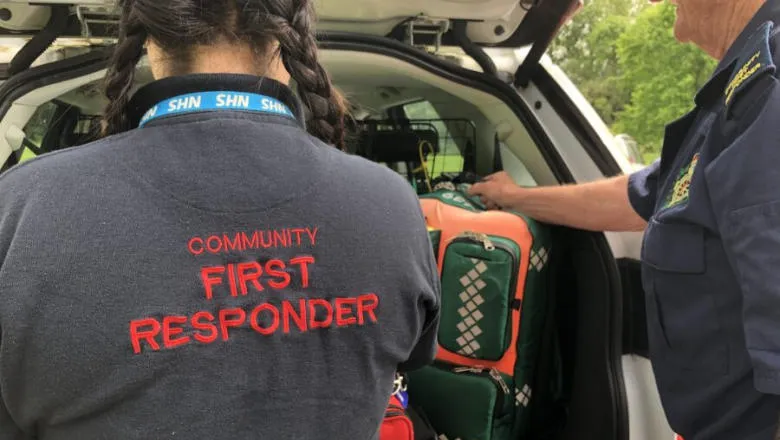New report examines the impact of CFR volunteers

The NIHR Policy Research Unit in Health and Social Care Workforce at King's College London today publishes findings from research investigating the impact of Community First Responders.
Community First Responders (CFRs) are volunteers who are trained and dispatched by ambulance services in their local communities. They may provide life-saving treatment for patients suffering emergencies such as cardiac arrest, stroke or breathing difficulties before the ambulance crew arrives. They may also attend less urgent calls to support patients. CFRs are a long-established example of volunteers volunteering within the NHS to support the ambulance service. This research aims to contribute to the evidence for supporting and developing volunteering to help patients and services more broadly across the NHS.
The research combines quantitative and qualitative approaches to data collection and analysis drawing on data from five NHS Ambulance Trusts that are using the CFR role. Our quantitative findings demonstrate high variation in the relationship between hours logged, active CFRs and average incidents attended. This suggests variation in both CFR deployment approach and data collection between trusts. We find that CFRs are active all year round, but they are more active in the day than at night and they are more active in rural rather than urban areas. Our qualitative findings demonstrate that CFRs are perceived to bring tangible benefits to the NHS. There are diverse factors that motivate CFRs to volunteer - but key is a desire to 'give something back'. The CFRs we interviewed overwhelmingly enjoy the role and gain fulfilment from it and they increasingly feel valued by paramedic and other ambulance staff. To function well, CFRs require a significant managerial commitment from ambulance trusts.
Building on these findings we suggest that the CFR role could be further developed and improved by better and more consistent data collection at both regional and national level - including moving from paper to digital record keeping. This research suggests that greater publicity of the CFR role in general might be helpful to increase uptake and ultimately CFR coverage. We also suggest that more research into the health economics and wider cost-effectiveness of CFR roles would be beneficial.
The report is lead-authored by Dr Alec Fraser, Reader in Public Policy & Management at King's Business School.
This publication
Fraser, A., Hickman, B., Regal, B., Haggar, T., & Boaz, A. (2025) Community First Responders and the ambulance service: 'How can we better demonstrate the impact of Community First Responder volunteers on the ambulance service, and what policy recommendations can we make based on this analysis?', London: NIHR Policy Research Unit in Health and Social Care Workforce, The Policy Institute, King's College London.






